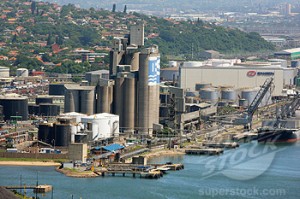Dickinson to Durban » Climate Change, Environmental Politics, Key COP17 Issues » Can local action combat a global issue?
Can local action combat a global issue?
By: Anna McGinn ’14
 In her article, “Thinking globally, acting locally—institutionalizing climate change at the local government level in Durban, South Africa,” Debra Roberts discusses Durban’s recent initiative to develop as well as address climate change. This reading reminded me of our discussion in Washington DC with Dallas Burtraw from Resources for the Future. Both Roberts and Burtraw emphasize that action at a local level is required to adequately mitigate and adapt to climate change. However, as Roberts states, it is imperative that both policy makers and the average person understands why action is being taken at a local level otherwise city level action is not effective. It seems that if policy and actions are well communicated to the public and tangible action occurs, local climate policy could contribute significantly to dealing with climate change.
In her article, “Thinking globally, acting locally—institutionalizing climate change at the local government level in Durban, South Africa,” Debra Roberts discusses Durban’s recent initiative to develop as well as address climate change. This reading reminded me of our discussion in Washington DC with Dallas Burtraw from Resources for the Future. Both Roberts and Burtraw emphasize that action at a local level is required to adequately mitigate and adapt to climate change. However, as Roberts states, it is imperative that both policy makers and the average person understands why action is being taken at a local level otherwise city level action is not effective. It seems that if policy and actions are well communicated to the public and tangible action occurs, local climate policy could contribute significantly to dealing with climate change.
Local climate change policies allow cities to better tailor the policies to their specific situations. For example, in Durban they have decided to address adaptation because they see the potential negative impacts of climate change on their development and economy. They know that water will be scarce, disasters will become more frequents, and erosion will continue, so they came up with a plan to address these issues. The problem is that although they know what needs to be done, their strategies now need to be implemented. If the city is able to adequately adapt, they will be an example to their country of how a local commitment to climate change can bolster a city’s development, not destroy it.
However, downfalls of depending on local policy include unequal commitments, an unengaged national government, and inadequate commitments. If implemented on a country scale, different cities would be able to shape policy how it best fit their needs, but at the same time they might not take on as much as other cities of comparable capabilities. Also, to some extent local action gives national governments an excuse not to take sufficient steps which is necessary in addition to local action. Further, cities might not commit to enough. For example, Durban is an industrial and economic center with a huge port which means that they release noticeable emissions. Although adaptation is important, they should also be taking on mitigation, not ignoring it.
Overall, local action is important because it informs average people and local policy makers about climate change. It also allows for flexibility, so cities take on what directly affects them. Although local action is imperative, it is not enough. The South African government needs to take on adaption to exceed that of Durban’s commitment as well as initiating mitigation requirements.
Work Cited:
Roberts, D., 2008. “Thinking globally and acting locally – institutionalizing climate change at the local government level in Durban, South Africa,” Environment & Urbanization 20(2):521-537.
Filed under: Climate Change, Environmental Politics, Key COP17 Issues · Tags: "Thinking globally and acting locally", Anna McGinn, climate change policy, Dallas Burtraw, debra roberts, Durban, South Africa









Recent Comments